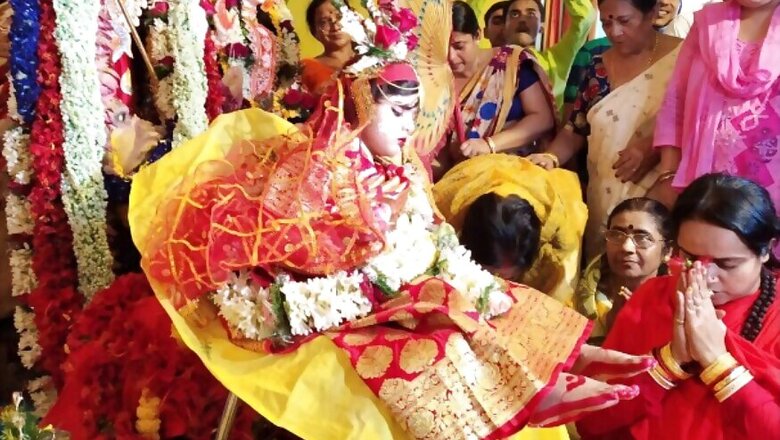
views
Kolkata: Four-year-old Fatema felt like a princess when she was worshipped as Goddess Durga during Ashtami puja last Dussehra by a couple in Kamarhati in West Bengal's North 24 Parganas District.
Following in the footsteps of Swami Vivekananda, who had worshipped the daughter of a Muslim Kashmiri boatman in 1898, Tamal Dutta and his wife Moushumi have performed 'Kumari Puja' or 'Kanya Puja' since 2012. The couple has made it a point to select girls from all religions and castes to send out a message that the goddess cannot be define by a single religion or caste.
In 'Kumari Puja', a ritual common in northern states and some parts of Bengal, pre-pubescent girls are worshipped as Durga.
"We try to send out a message of love, harmony, peace and brotherhood in the society. Last time, we chose a Muslim girl; before that we worshipped a Dalit girl," said Tamal, a civil engineer by profession. Moushumi is an advocate.
Fatema lives with her mother Bushra Bibi in Kamarhati, with her father Muhammad Tahir away in Agra where he runs a shop.
While Fatema was worshipped as a Hindu goddess, her uncle thinks the government is discriminating against the minority community by bringing in the Citizenship Amendment Act (CAA). He has moved the Supreme Court against the controversial legislation he describes as the government's "attempt to divide people on the basis of their religion".
Muhammad Ahmed said the issue of citizenship raging around the country has left him depressed.
"We have people like Tamal Dutta in our society. And then we also have people like them (referring to politicians) who are trying to divide us on the basis of our religion and citizenship issue," he said.
Ahmed, who works as a businessman and imports and exports garments, described himself as "a non-political person", saying he likes to stay away from news.
"But this citizenship issue really shook me," he said, adding that he felt humiliated when the BJP-led central government passed the CAA and announced a proposal to implement the National Register of Citizens all over India, with both the issues considered stridently anti-Muslim.
"It was like we are an eyesore," said Ahmed. "I look at Fatema, I look at Tamal da and I look at them (politicians). I feel proud that Fatema was worshipped by Tamal da and they live in my locality. Then I questioned the how different the politicians, Fatema and people like Tamal da are. I then got the answer that we need to fight back the evil in our society. So I filed a case in the Supreme Court through my lawyer Bikash Ranjan Bhattacharya on January 22."
The Act, under which non-Muslim refugees from Pakistan, Bangladesh and Afghanistan will be given Indian citizenship, came into force from January 10. It was passed by the Parliament on December 11.
According to the CAA, members of Hindu, Sikh, Buddhist, Jain, Parsi and Christian communities who have migrated from Pakistan, Bangladesh and Afghanistan till December 31, 2014, facing religious persecution there will not be treated as illegal immigrants and given Indian citizenship.
There have been widespread protests against the Act in different parts of the country.
Ahmed considers the CAA as a discriminatory legislation.
"Those who are trying to impose such religion-based laws should explain what they think about singer Mohammed Rafi and musician Naushad, who composed and sang 'Man Tarpat Hari Darshan Ko Aaj' from 'Baiju Bawra'," he said.
Ahmed moved the Supreme Court on the same day when it refused to stay the law and gave the Centre four weeks to respond.










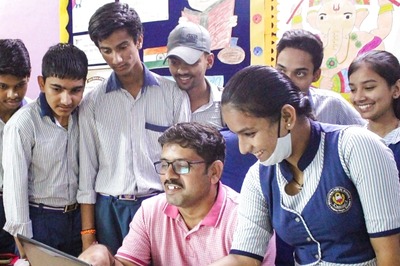


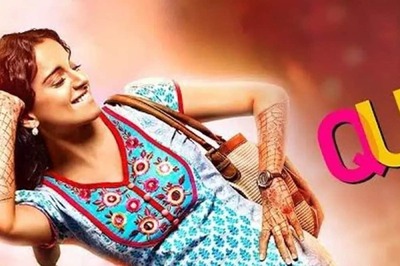
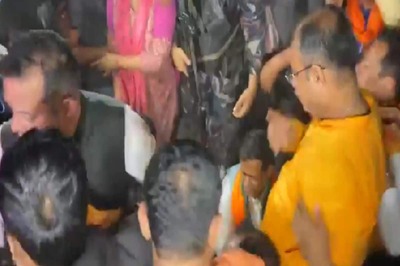
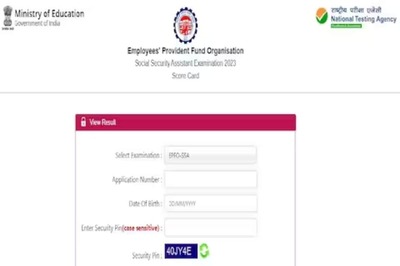
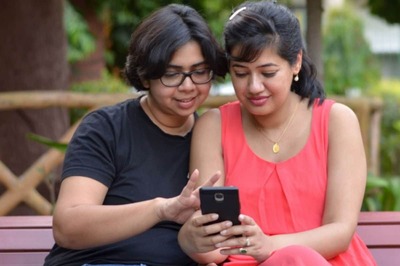
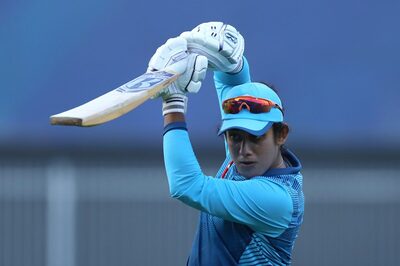
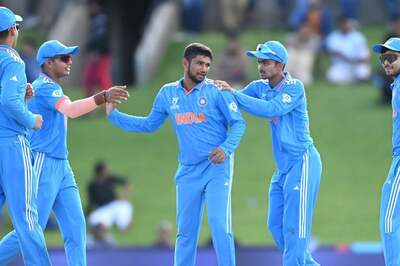
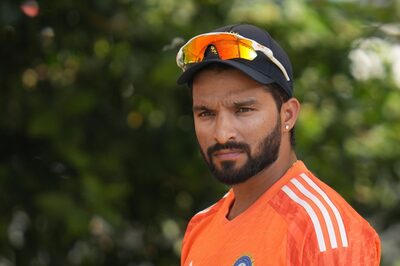
Comments
0 comment